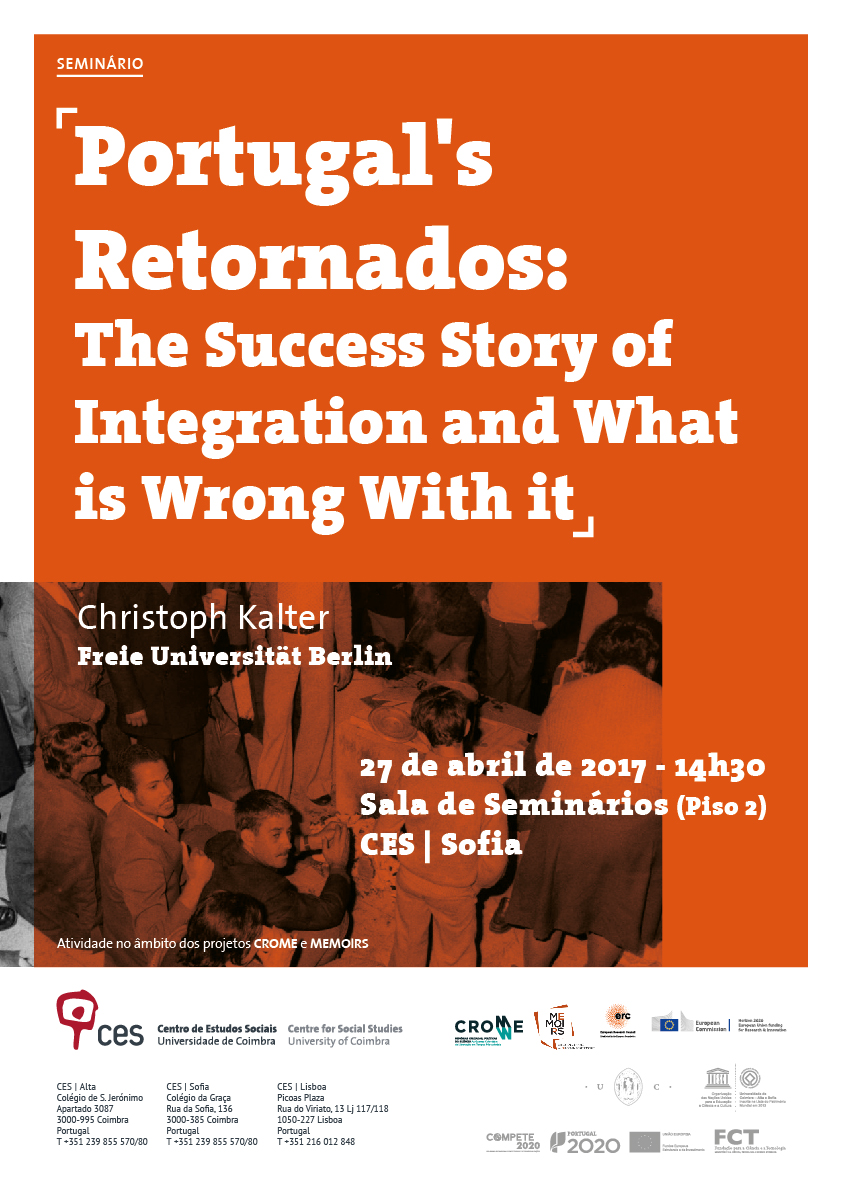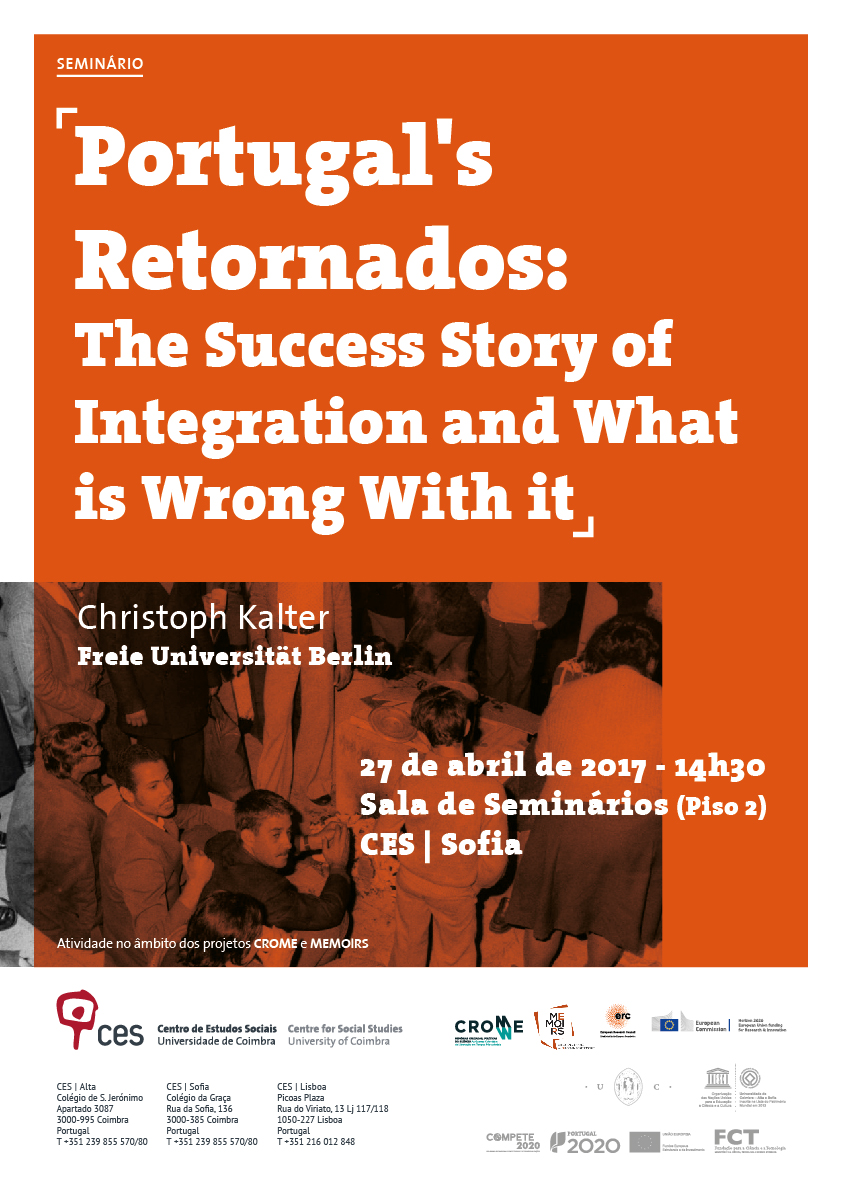Seminário
Portugal's Retornados: The Success Story of Integration and What is Wrong With it
Christoph Kalter (Freie Universität Berlin)
27 de abril de 2017, 14h30
Sala de Seminários (Piso 2), CES | Sofia
Abstract
Based on research on state-paid housing for Portugal’s so-called retornados after 1974, this talk argues that the dominant narrative of a successful integration of these migrants into Portuguese society is in need of qualification. While integration was in fact overall successful, it must be stressed that it was also uneven in its nature and that it brought considerable hardships for many migrants. Furthermore, and going beyond the question of its factual accuracy, the 1970s success story of integration must be seen a (post-)colonial, nationalist master narrative that needs to be historicized and critically deconstructed—even more so since it has resurfaced forcefully since the 2000s.
Bionote
Christoph Kalter is an Assistant Professor at the Center for Global History at the Freie Universität Berlin. He received his PhD in Modern History from the same university in 2010. His research concentrates on decolonization after 1945 and the postcolonial societies of Europe, especially France and Portugal. His first book was published by Cambridge UP in 2016 (originally published in German in 2011). Entitled ‘The Discovery of the Third World: Decolonization and the Rise of the New Left in France, c. 1950-1976,’ it deals with the interconnection between the rise of the concept of the "Third World" and that of a new radical left in France. Currently, Christoph Kalter is pursuing his interest in postcolonial Europe in a second book-length project, entitled ‘Postcolonial People. Migration and Decolonization in Portugal, c. 1974-2014,’ which addresses the history of decolonization in the metropole through a focus on the so-called retornados.
Activity within the research projects CROME | Crossed Memories, Politics of Silence: The Colonial-Liberation Wars in Postcolonial Times and Memoirs | Children of Empires and European Postmemories funded by the European Research Council (ERC)



